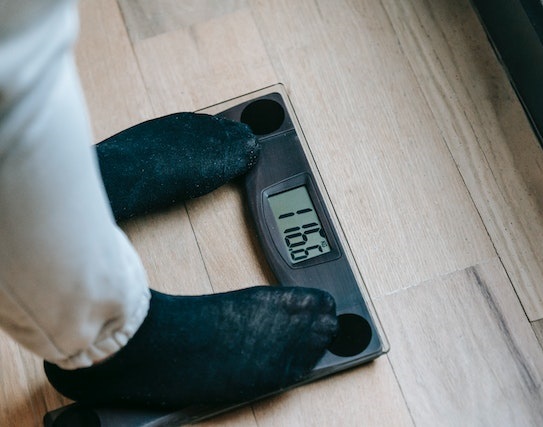Skip over navigation
Here you can see a picture of someone weighing themselves:

What sort of things could you use to weigh yourself?
When you have found something to weigh yourself with, see what you can find out.
What is your weight in kilograms?
What is your weight in grams?
Or search by topic
Number and algebra
Geometry and measure
Probability and statistics
Working mathematically
Advanced mathematics
For younger learners
Measure Our Weights
Age 5 to 7
Challenge Level 





- Problem
- Student Solutions
- Teachers' Resources
Measure Our Weight
Here you can see a picture of someone weighing themselves:

What sort of things could you use to weigh yourself?
When you have found something to weigh yourself with, see what you can find out.
What is your weight in kilograms?
What is your weight in grams?
Why do this problem?
This problem encourages pupils to find ways of measuring their weights and to consider appropriate units.
Possible approach
Talk to the children about measuring their weight, to find out what experiences they have had. Ask them to suggest what they would use to help them find out how heavy they are.
Give them time to use one or more pieces of equipment to find out their weight and ask them to record the results.
In the plenary, you could share some examples of different ways of recording weights which you have observed (in terms of the units used), for example grams vs kilograms and grams vs kilograms written in decimal form. You could invite children to explain the different forms and discuss how to convert between them.
In the plenary, you could share some examples of different ways of recording weights which you have observed (in terms of the units used), for example grams vs kilograms and grams vs kilograms written in decimal form. You could invite children to explain the different forms and discuss how to convert between them.
Key questions
How did you do the measuring?
Are there other ways to write this weight?
